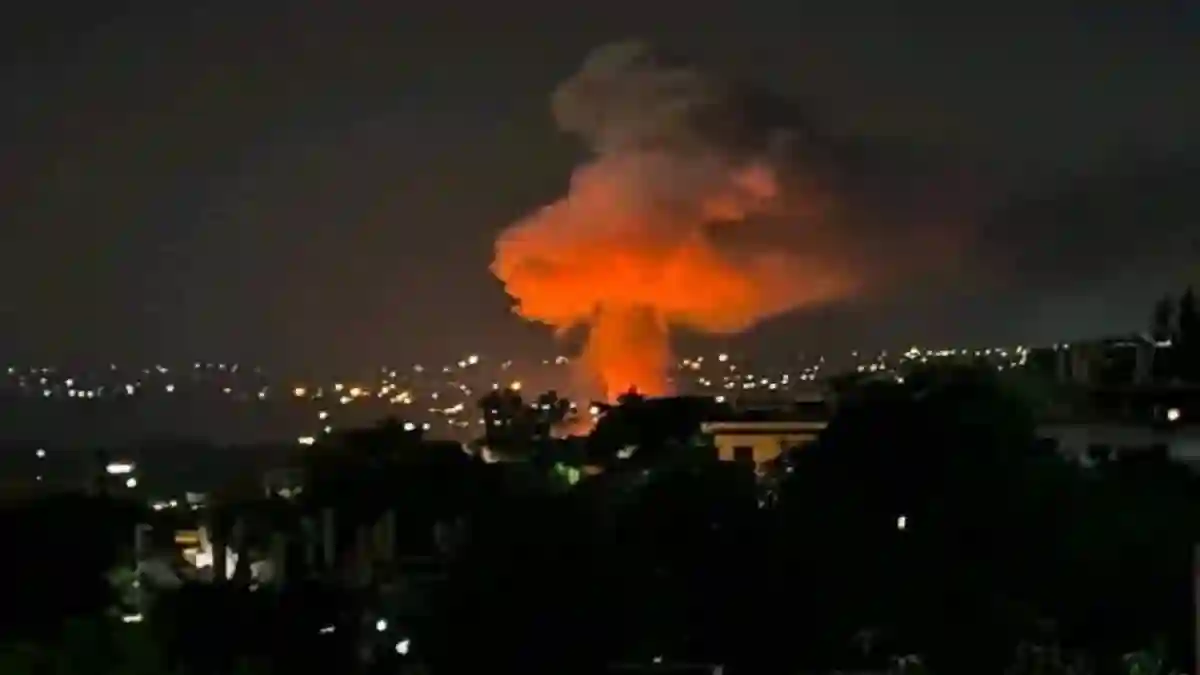
Kabul/Islamabad, October 10: Pakistan has reportedly conducted aerial strikes on Taliban linked targets in Afghanistan’s capital, Kabul, in what is being described as one of the most serious cross border escalations since the Taliban’s takeover in 2021. The strikes allegedly targeted Tehreek-e-Taliban Pakistan (TTP) chief Noor Wali Mehsud, raising fears of a renewed conflict between the two neighbouring countries.
According to multiple reports, powerful explosions were heard in central and northern parts of Kabul late on Thursday night, followed by the sound of fighter jets and automatic gunfire. Afghan residents confirmed “unusual aerial activity” over the city, while local media reported that several civilian structures were damaged in the attack.
Afghanistan’s Taliban spokesperson, Zabihullah Mujahid, acknowledged the explosions but urged calm, stating that “the situation is under control” and that investigations were underway. No official casualty figures have been released so far.
Noor Wali Mehsud Feared Dead, Confirms He Is Alive
Initial intelligence reports suggested that Noor Wali Mehsud, the TTP’s top commander, was the intended target of the airstrike and was feared dead. However, News18 later accessed an alleged voice message from Mehsud claiming he is alive and currently in Pakistan. The message confirmed that his son was killed in the attack, along with several close aides.
Security sources indicated that the targeted location was a compound in eastern Kabul known to house senior members of the TTP and al-Qaeda. If confirmed, the strike marks a major development in Pakistan’s campaign against cross-border militancy.
A Shift in Pakistan’s Security Strategy
The reported operation comes just days after Pakistan’s Defence Minister Khawaja Asif accused the Taliban government of harbouring terrorists responsible for recent attacks inside Pakistan. Analysts suggest the strike could be a retaliatory measure, reflecting Islamabad’s growing frustration over the Taliban’s reluctance to act against the TTP.
This would be the first known instance of Pakistan conducting air operations deep inside Kabul since the Taliban took control of Afghanistan in 2021. Experts believe the attack was either directly executed by Pakistan or involved coordination with a third-party power providing intelligence or technical support.
Rising Diplomatic Tensions
The incident coincides with the ongoing visit of Afghanistan’s Interim Foreign Minister Amir Khan Muttaqi to India, where he is scheduled to meet External Affairs Minister S. Jaishankar and National Security Adviser Ajit Doval. The timing of the strike, during such a high-level diplomatic engagement, adds complexity to the regional security scenario.
The Taliban administration has condemned the airstrike as a violation of Afghanistan’s sovereignty. Taliban-affiliated media channels have also begun calling for retaliatory actions, including possible suicide attacks inside Pakistan — a move that could trigger a dangerous escalation.
Regional Implications
Security analysts warn that the attack could deepen internal divisions within the TTP’s leadership, which is already split between factions aligned with Kabul and Rawalpindi. The resulting instability may spill over into border provinces such as Kunar, Nangarhar, and Paktika, worsening the volatile security situation along the Pakistan-Afghanistan frontier.
The airstrike in Kabul, whether officially acknowledged or not, underscores Pakistan’s readiness to extend its counterterrorism operations beyond its borders. As both nations navigate a fragile relationship marked by mutual suspicion, the coming weeks will determine whether this strike remains an isolated event or the beginning of a more assertive regional security posture.
















